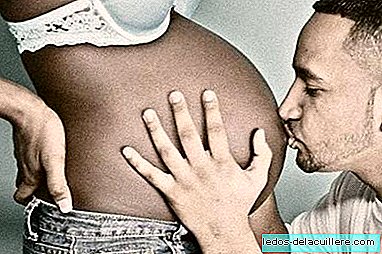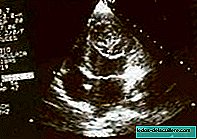
We knew that vocal recognition already acts within a few days of the newborn baby, who already remembers words. And it is that from the moment of birth there are specific areas of the human brain that are activated when they hear words. Now another step has been taken pointing out that the brain of the fetus already remembers the sound of the words after six months of gestation.
Specifically, he recognizes the vowels of the mother's language, which is the best and most listener before birth. And that recognition has been proven within a few hours after the baby was born. It was thanks to an experiment carried out by researchers from the Institute for Learning and Brain Sciences of the University of Washington (United States).
The study is entitled "Language experienced in utero affects vowel perception after birth: a two-country study", "The language experienced in the uterus affects vocal perception after birth: a study of two countries".
Their results are consistent with previous studies that indicated, for example, that the baby "is bilingual" already from the mother's womb if she has heard two languages before birth (in fact, it was shown that prenatal exposure to bilingualism already affects the preferences of babies by language and its "predisposition" to be interested, differentiate and learn both languages).
The current experiment has been performed with 80 babies born of only 30 hours of life. To reinforce its validity, it was divided into two cohorts: one American (in which the children had to show that they recognized English) and another Swedish (in which the language that had to be familiar to newborns was Swedish).
The manner and frequency of sucks to the pacifier was the fact on which the researchers relied to test their hypothesis. Both Swedish and American babies recognized the sounds of mother tongue and reacted differently to words in another language.
Newborns clung less to the pacifier when they heard the mother tongue that when they were words in a language that was not familiar to them. Specifically, the vowel recognition was measured, which is shown to be the first sounds they recognize (they are longer and more easily noticeable than consonants).
Therefore, it is noted that after six months of gestation, the baby is prepared to "learn" a language. And let's not expect that age to advance too much: it is around week 24 when he is able to hear sounds.
And it is the mother's voice that they hear optimally: other external voices are too attenuated for the fetus to recognize the words.
In any case, I would like the experiment to have studied another question: would the baby react in the same way even if his mother spoke to him, after birth, in a language other than the one he used during pregnancy?
Wouldn't it be in that case the voice of the mother and not the language that catches the attention of the little one? It would not be so relevant then the sound of certain vowels, but the whole voice of the mother. This hypothesis seems plausible, but we will have to wait for new studies in this regard ...












